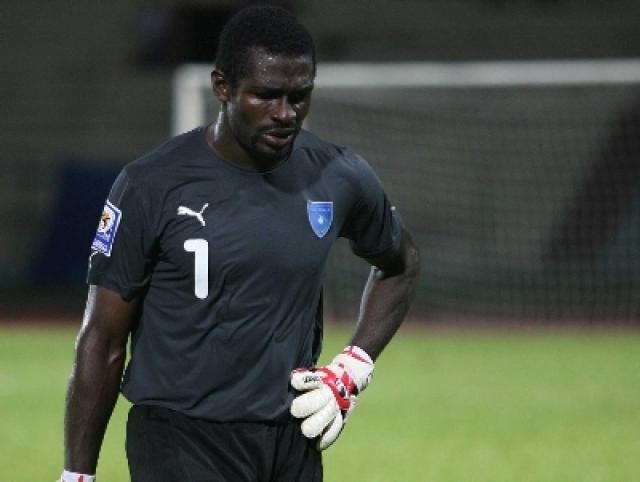
I read a story this week about a father and son in Guatemala playing on the same team. To add to it, the son, José Ricardo Trigueño, regularly shoots on his father, goalkeeper Ricardo Trigueño during training sessions.
The elder player will tell his son when a shot was too easy to save and will help him with his finishing. In addition to his shot-stopping instincts, the elder Trigueño also has several goals to his name, able to play as an emergency forward as well, so you have to think he knows what he’s talking about. Once, the 19-year-old messed up in a drill, so after training the father set up the same scenario and they worked on it until the son had it right.
“I definitely feel very fortunate,” the younger Trigueño told Rudy Martinez. “It’s a dream come true,”
It’s a nice story, but I can’t say working on the same team as my dad would ever be a dream come true.
My dad is great, and I’ve been extremely fortunate to have him in my life. He’s always been supportive and very loving. He tolerated and supported my sports obsession, despite being puzzled at how the son of two teachers who were at best passively interested in sports ended up with a kid who wanted nothing more than to read the sports section and then watch every sport possible for hours. (All this continues to this day, as my Dad faithfully reads pretty much everything I write, becoming perhaps the biggest fan of Concacaf obscurity who doesn’t actually watch any matches).
But teaming up may have been a disaster. We made it through a few times when he directed a music ensemble I was in, and he got roped being the assistant coach on a few teams I played on as a kid, but otherwise there was a reason my multi-instrumentalist father let me teach myself how to play bass, sent me to lessons for trumpet and paid for me to go to driver’s ed rather than the home-taught method.
My Dad and I are both stubborn in the same ways, so when he’d try to teach me how to do something, we’d butt heads. Aside from both of us being bad athletes, I can’t imagine him giving me shooting practice when I was a hard-headed 19-year-old having gone well at all.
So, props to the Trigueños for making it work, but I would’ve walked off the training ground the first time my dad told me to put it in the corner.
We don’t have as many father-son stories like the Trigueños as you’d expect in a sport like soccer where so many people around the world play the same game and, while the game is very global, often do so in close proximity to their hometowns.
Even fathers and sons not playing together aren’t that common. Some notable exceptions in the region hop to mind - current Mexico internationals like Javier “Chicharito” Hernandez and the Dos Santos brothers hop to mind, Costa Rican midfield maestro Celso Borges got at least some of his soccer smarts from dad Alexandre Borges Guimarães and Gio Reyna seems set to follow in father Claudio’s footsteps though he has a long way to go to match his 112 caps.
I think it can be very difficult in a sport like soccer for both a soccer and a son to be active. It’s so difficult both to sustain a career and sustain a family. The sport demands so many moves, either to reach your high point or continue earning money playing the game.
I profiled FC Dallas forward Jesus Ferreira last year for the Dallas Morning News and called up his father, David, who was still playing at the time. But David was playing in Colombia while Jesus started his career thousands of miles away up north. David told me he watched Jesus whenever he could, but because of the conflicts of playing his own games, he often had to settle for highlights or updates over the phone.
That can’t be easy for either party, but I think the sons especially trying to fight their way through the lower levels and often weighed down by the expectations that come with their last names, have it tough. Their dads often are playing with another team or in an entirely different country. Meanwhile, everyone expects them to be as good or better than the one who came before them. Of course, they’ve grown up in entirely different envrionments than their fathers did, in different neighborhoods, with different priorities and other opportunities.
Perhaps that’s why there aren’t as many father-son success stories in our sport as come to mind in a game like basketball or baseball. In such a global game, keeping a kid growing through an academy while your playing career is in process requires so many things to go right, even beyond the younger kid having the talent and potential necessary to stick in a highly competitive environment.
I suspect my Dad and I aren’t so different from a lot of fathers and sons. We have our disagreements. I don’t want him to be my coach. But that allowed me to find my way, and I knew he always was there to cheer me on from the sidelines.
Here’s to all the dads today, the ones who would come out of retirement to play in the second division with their kid and the ones who would rather hire a good coach or private tutor or whatever the case may be than get involved because it just wouldn’t go well.
There’s no better or worse way. The love is no stronger or less strong.




